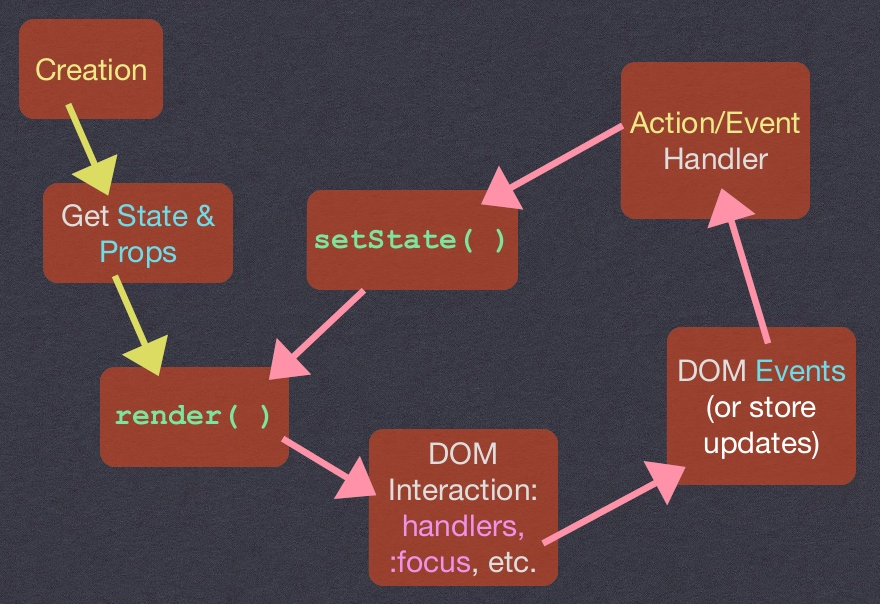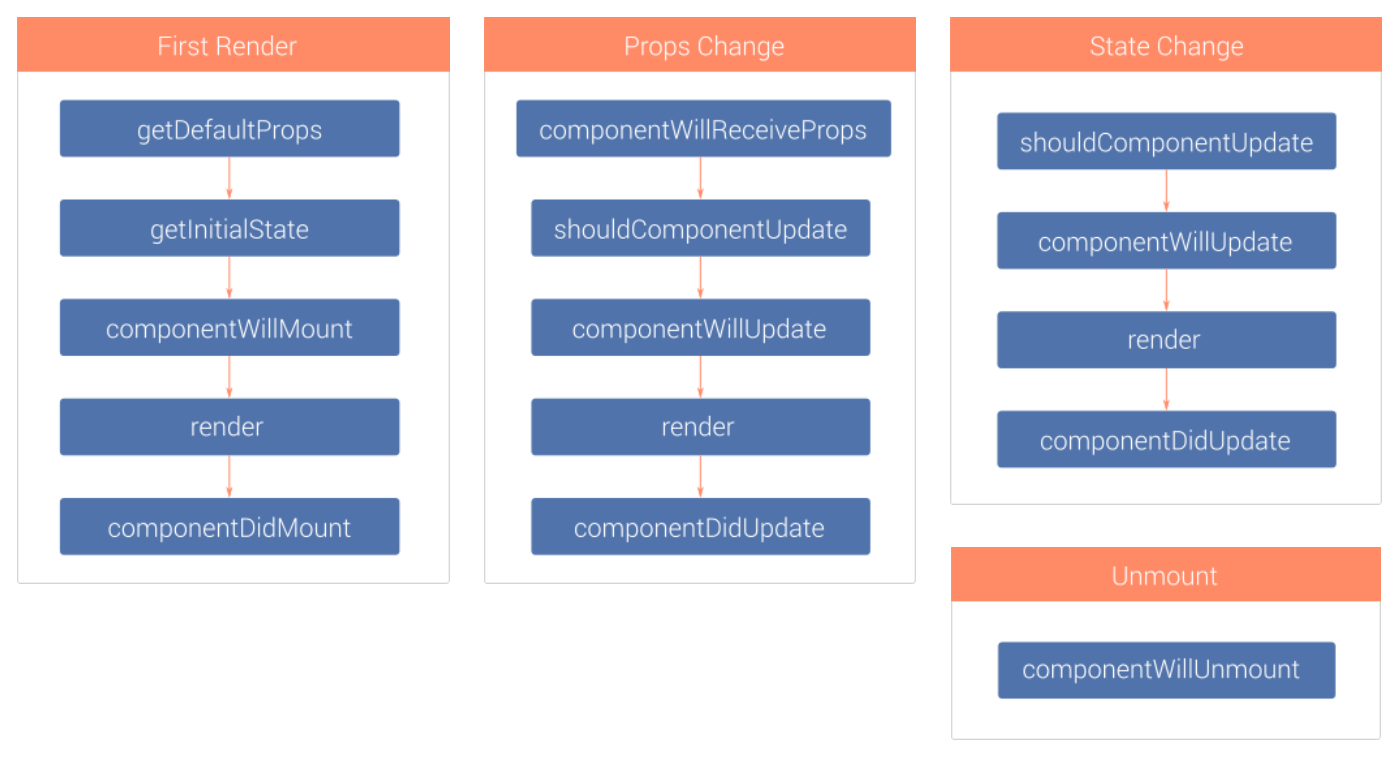React.js 精要
Junfeng Liu
2017-06-23
React 核心思想
- 组件化
- 分而治之
- 代码复用
- 单向数据流
-
Components are the main building block of a React application.
-
A component represents a self-contained piece of UI.
-
Display some data and be able to handle some kind of user interaction.
-
Make complex components from simpler components.
-
Composable, reusable, maintainable, testable.
Everything is a Component
-
Data flows only in one direction: down the tree.
-
Never 'update' or 'mutate' the DOM. We simply re-render it.
-
Props are immutable, handed from parent to child.
-
State is mutable and changes trigger re-render.
Single Source of Truth
React 组件结构
props
state
render
Virtual DOM
DOM
Component
Element tree (JSX)
JSX
Angular, Ember and Knockout put “JS” in your HTML.
React puts “HTML” in your JS.
- Compile-time Errors
- Leverage the Full Power of JavaScript
- IDE Intellisense support
JSX isn’t some wild idea. It’s a natural progression.
- Strictly separating HTML and JS actually led to applications that were harder to maintain and debug.
- Frameworks involve by adding extra proprietary markup to make HTML more powerful, essentially putting JavaScript in HTML.
- HTML and JavaScript belong together. JavaScript was a more logical and powerful technology for handling these two intermingled concerns.
const element = <h1 className="greeting">Hello, world!</h1>;
const element = React.createElement(
'h1',
{className: 'greeting'},
'Hello, world!'
);
const element = (
<h1>
Hello, {formatName(user)}!
</h1>
);
const element = <img src={user.avatarUrl}></img>;
ReactDOM.render(element, document.getElementById('root'));JSX produces React “elements”.
You can embed any JavaScript expression by wrapping it in {}.
JSX is an expression too.
const sampleComponent = () => {
return isTrue && <p>True!</p>;
};
const sampleComponent = () => {
return isTrue ? <p>True!</p> : <p>False!</p>;
};
// do expression on stage-1
const sampleComponent = () => {
return (
<div>
{
do => {
if (flag && flag2 && !flag3) {
if (flag4) {
<p>Blah</p>
} else if (flag5) {
<p>Meh</p>
} else {
<p>Herp</p>
}
} else {
<p>Derp</p>
}
}
}
</div>
)
};Conditionals in JSX
const SearchSuggestions = (props) => {
// renderSearchSuggestion() behaves as a pseudo SearchSuggestion component
// keep it self contained and it should be easy to extract later if needed
const renderSearchSuggestion = listItem => (
<li key={listItem.id}>{listItem.name} {listItem.id}</li>
);
return (
<ul>
{props.listItems.map(renderSearchSuggestion)}
</ul>
);
};Lists Components
Element
- DOM element
- Component element
Component
- Functional Component
- Class Component
DOM and Component Elements
const element = <div />;const element = <Welcome name="Sara" />;Functional and Class Components
function Welcome(props) {
return <h1>Hello, {props.name}</h1>;
}class Welcome extends React.Component {
render() {
return <h1>Hello, {this.props.name}</h1>;
}
}User-Defined Components Must Be Capitalized
React 组件生命周期

Events flow up, data flows down
React 全局数据的管理
- Redux
- Mobx
- 代码繁琐
- 异步数据的处理
Redux 的缺点
Mobx

React
By Liu Junfeng
React
React.js 精要
- 936





